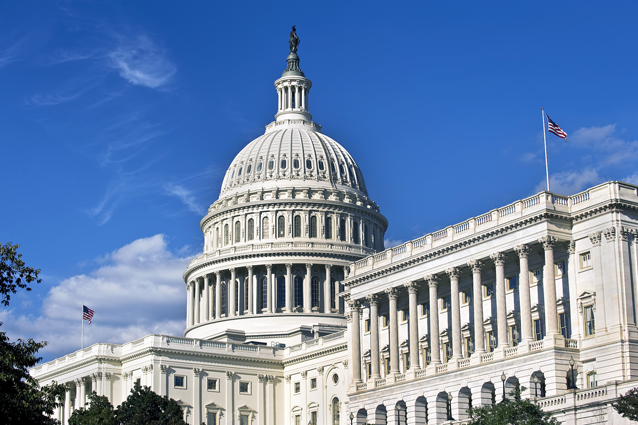Note
Three Key Outcomes of the “One Big Beautiful Bill Act” on US Manufacturing and Innovation
The budget reconciliation bill passed by the House has important implications for US technology investment, manufacturing, and innovation.

Rhodium Group’s Energy & Climate practice uses a multidisciplinary, data-driven approach to produce unique, independent insights into global energy dynamics, greenhouse gas emissions, and climate change.
We help public and private decision-makers understand what kind of climate future we are on track for, and what matters most for reducing greenhouse gas emissions—at the local, state, national, and international levels. By combining policy expertise with a suite of detailed energy-economic models, our research provides data-driven insights into the impacts of energy and climate change policy and real-world developments on greenhouse gas emissions, energy markets, economic output, and clean technology pathways.
Note
The budget reconciliation bill passed by the House has important implications for US technology investment, manufacturing, and innovation.
Note
The House Ways and Means Committee's proposed language will raise energy costs for American households by as much as 7% in 2035, stifle energy technology innovation, increase pollution, and could put significant investment at risk.
Report
In the first quarter of 2025, clean energy and transportation investment in the United States totaled $67.3 billion, a 6.9% increase from the same period in 2024 but a 3.8% decrease from the previous quarter.
Note
Since the US enacted the IRA, manufacturing has emerged as the fastest-growing segment of investment in clean energy technologies. We assess the state of key clean technology supply chains for solar, wind, batteries, and electric vehicles.
Filters:
Showing 201 – 210 of 220 total results
Note
Washington and Brussels are trying to curb Iranian oil revenue in a bid to convince Tehran to abandon its nuclear weapons program. But it appears financial sanctions imposed by the West are having a more immediate impact on what Iran buys from abroad rather than what it sells. Reports this week suggest Iranian companies are finding it increasingly difficult to import food, raising the specter of a political crisis ahead of the parliamentary elections on March 2nd. Tehran is trying to a get around the issue by bartering food for oil, but a close look at the data suggests this will only be a partial solution at best.


Note
The US and Europe are stepping up the pressure on Iran by going after the country's oil exports. RHG's Trevor Houser and Shashank Mohan assess what this means for global oil markets in the coming year.

Note
Reactions to the results of the annual UN climate change conference that wrapped up last week in South Africa have been all over the map. This wide range of reactions is understandable, as there wasn’t one agreement reached in Durban, but three. And the value of each of those agreements depends entirely on your view of how best to tackle climate change

Report
As the annual UN climate change conference begins in Durban, RHG's Trevor Houser assesses the prospects the US will be able to deliver on its share of a $100 billion climate finance pledge.

Book
Trevor Houser co-authors this analysis of the options for addressing international competitiveness issues in US climate policy design.

Note
The term “energy poverty” is used to describe the 1.6 billion people in the developing world who lack access to electricity or the more than 2 billion who still rely on biomass as their primary source of energy. This phenomenon presents a significant barrier to economic growth in poor countries. But data released last week from the Census Bureau points to a new kind of energy poverty taking place here in the United States as the result of high oil prices and a weak economic recovery.

Note
The financial sanctions imposed against Iran over its nuclear program have severely disrupted Iran’s petroleum trade with its second-largest customer, India. In this note we assess the impact on global oil markets and India-Iran relations.

Note
Trevor Houser and Shashank Mohan assess the oil market impact of the 2017-2025 vehicle efficiency standards just announced by the Obama Administration.

Report
As US gasoline prices approached $4 a gallon in spring 2011, energy security moved to the forefront of the American political debate. Houser and Mohan analyze the various recent policy proposals, from expanded offshore drilling to new vehicle efficiency standards.



